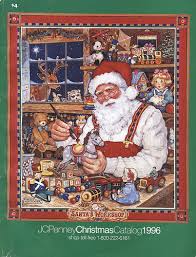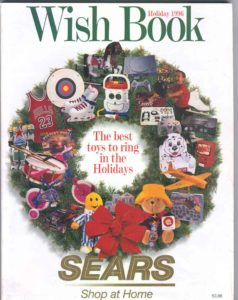Don’t feel broke at Christmas – Change the game.
Editor’s note: This post first appeared on the personal finance website Make Change, where I irregularly contribute to their It’s Complicated advice column and podcasts! Also, I had previously mentioned my family’s spiritual christmas tradition on an earlier B$A blog post.
Dear Ex-Banker:
The holidays are coming up and I’m already stressing out! My extended family has a variety of income levels and situations—from a wealthy single aunt to my cousin’s family of four trying to make ends meet on one modest salary. I’m a freelancer, so some years my partner and I have more money to spare than others. All this makes gift-giving a minefield of difficult decisions. Should I spend more to match my aunt’s taste? Give my cousin practical gift cards instead of toys for the kids? During flush years, is it OK to spend more lavishly to make up for times when I’ve given smaller trinkets?
Opening gifts together is a part of our holiday tradition that I used to cherish, but now dread as our big family grows. I know it’s the thought that counts, but now I’m overthinking this! Are there any strategies that will help release this present-pressure?
—–
I love your question because it gives me an opportunity to humblebrag – or maybe just outright brag – about the proudest family moment of my own life.[1] In this nearly-exact situation myself in my twenties, I came up with a solution that was both self-serving and holiday-tastic. I was doing well AND doing good. (It’s almost like that’s a theme I’ve heard here before. Anyway.)
Implementing your own version of this vision would require some effort and organizing on your part, as well as emotional bravery. But the rewards are worth it.
So, my story: In my third year in college[2] I too dreaded the approaching holidays, because I had no money. My older brother and sister were already married,[3] employed, and well-established enough to be able to afford pretty nice presents for family members. I couldn’t afford anything without going into debt. With great in-laws comes great responsibility, so I felt the added pressure not just to provide gifts for my nuclear family but for the expanding crew with whom I’d be spending Christmas. My brother would readily admit that he has better taste and brand discernment than the rest of us, adding an extra competitive element to annual gift-giving. Like you, I dreaded the Holidays.
My proposal, which I typed up and distributed to everyone in the family in the weeks before Thanksgiving, was to change the game. I had two big ideas.
“Forthwith!” (I didn’t actually write that specific word, but it was implied in my tone) “The Taylors will be each assigned a single family member, for whom they are permitted to purchase a gift from a store.”
“In addition!” I probably wrote, “each family member will be assigned a single other member, to whom they are expected to present a “non-material gift.”
My wording there, “non-material gift,” was meant to say that the essence of the second gift could not be paid for, or bought, at a store. In later years (because we ended up adopting my plan for about a decade) the “non-material” gift got renamed the “spiritual” gift, and my whole idea was dubbed “Spiritual Christmas.”
But I didn’t want to freak anyone out, getting all “OM – Shanti Shanti Shanti” on my family with my original proposal, so I distinctly just wanted to point out that the second gift assignment meant you couldn’t buy the family member a gift at a store. You had to make it by hand.
Also, I figured allowing for one “material” or store-bought gift was a nice compromise nod to the traditional American values of massive consumption for the Holidays. I wanted us to be enlightened, but not to force us to be, like, too enlightened.
Finally, I asked family members to all stay strict and not make additional gifts beyond the ones to the two specific material and non-material assigned recipients. This was the key to not undermining the whole Spiritual Christmas plan. I even suggested no gifts between spouses if they weren’t assigned – although I didn’t have an enforcement mechanism there.
So what happened next? We had the best Christmases ever. My sister wrote a poem for my mom. My brother-in-law built a wooden CD holder[4] for my Dad. A handmade crossword puzzle. Fresh-baked bread accompanied by recipes. A mix-tape of bluesy music with a note exploring personal experience with bouts of depression.[5] A three-dimensional Scrabble Board art piece. A needlepoint rug that my Mom had worked on for years to complete. An incredibly moving passage written by my brother for my Dad – comparing him to a high-end bottle of scotch – that beats anything anyone will ever say at his funeral some day. Tears.
So. Many. Tears.
The inevitable crying portion of spiritual gift-giving became the highlight for me. I loved Christmas because for the first time it became the opportunity to say the feelings my WASP-y family would never dream of saying out loud, in any other context.
The post-script to my own family’s spiritual Christmas celebrations is that once the next generation came along – first my nieces and nephews and then my own kids – we reverted back to the materialism of every other red-blooded American family. At this point we all can more or less afford the wasteful spending, and maybe partly we didn’t want to freak out the younger generation with our tear-streaked faces on Christmas morning. I will say, however, that I’ve gone back to dreading Christmas each year, so you can see where my own preferences lie.
Anyway, I’m a finance guy, and you asked a pretty straightforward financial advice question, and I answered by basically saying you have to change the game of Christmas away from money in order to begin enjoying it again. I believe that deeply.
Do you wish I had answered in a more traditional manner, weighing in on the pros and cons of gift-cards and of spending variable amounts, depending on the years’ earnings? I mean, I could do that but my heart wouldn’t be in it. You’d remain incredibly stressed, as was I. I once solved your problem in my own life, and no other solution even comes close.
[1] At least until I got married and had kids myself.
[2] This was back in the year when the most shocking thing a President had ever said in public was that he wore boxer shorts. I’m old enough to remember when…
[3] Important clarifying note: Not to each other, silly.
[4] Nobody remembers these anymore, but CDs used to be a popular way of storing music. I know, weird.
[5] That one actually bridged the time gap away from music CDs, because the mixtape was uploaded to an early-version iPod.
Please see related posts:
It’s A Wonderful Life – The Bankers Anonymous Origin Story
Post read (215) times.






